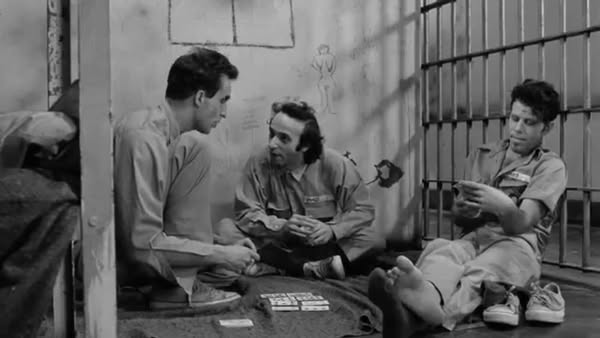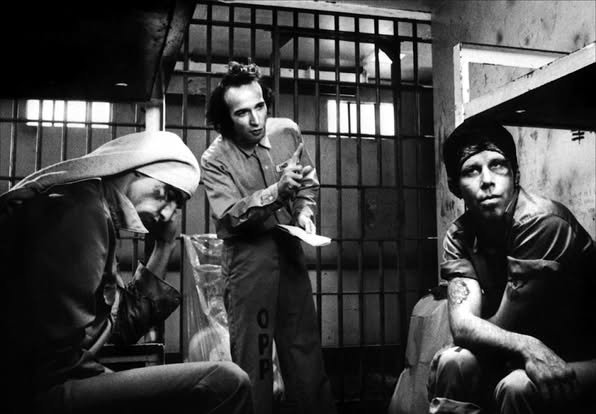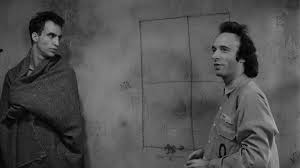Down by Law (1986)

Down by Law is a 1986 independent film directed by Jim Jarmusch, known for its distinctive blend of comedy, drama, and a unique visual style. The film features a minimalist narrative structure and is celebrated for its offbeat characters and deadpan humor, emblematic of Jarmusch’s signature filmmaking approach.
The story follows three misfits: Jack (John Lurie), a New Orleans DJ; Zack (Tom Waits), a down-and-out bartender; and Roberto (Roberto Benigni), an Italian immigrant. After being wrongfully imprisoned, the three men find themselves sharing a cell and reluctantly forming an unlikely bond. Their contrasting personalities and backgrounds create a rich tapestry of interactions that drive the film’s narrative.

Set against the backdrop of New Orleans, the film showcases the city’s vibrant culture and atmospheric settings. Jarmusch’s direction emphasizes the rhythm of the characters’ lives, using long takes and wide shots that allow viewers to immerse themselves in the world he creates. The cinematography captures the gritty charm of the urban environment, contributing to the film’s overall aesthetic.
Down by Law explores themes of friendship, isolation, and the search for freedom. As the characters navigate their circumstances, the film delves into the absurdity of life and the randomness of fate. Their journey becomes a testament to resilience and the importance of human connection, even in the bleakest of situations.

The performances are standout, particularly Roberto Benigni, whose comedic energy contrasts with the more subdued characters of Jack and Zack. The film’s dialogue is sharp and often humorous, filled with philosophical musings that reflect the characters’ struggles and outlooks on life.
The soundtrack, featuring a blend of blues and jazz, enhances the film’s mood and complements its setting. The music becomes an integral part of the storytelling, adding depth to the characters’ experiences.

In summary, Down by Law is a beautifully crafted film that combines humor, drama, and a sense of existential reflection. With its memorable characters, unique style, and poignant themes, it remains a significant work in independent cinema and a testament to Jim Jarmusch’s artistic vision.











